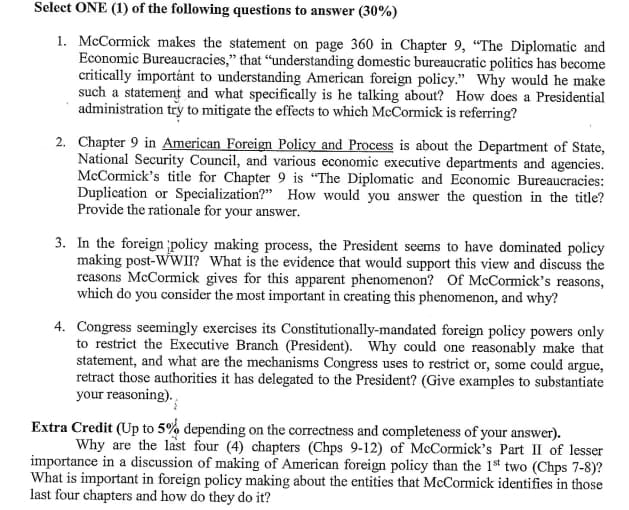Mandatory Questions
Question One
In the foreign policy making process, the Executive branch is one of the U.S government’s institutions granted authority by the U.S constitution to create American policy. What powers is it mandated by the Constitution that provide the justification for its participation in foreign policy making, and what do each of those powers pragmatically mean?
What is the theory of the unitary executive? Is this theory of the unitary executive a sound explanation or a greater exaggeration of the reasons McCormick gives for the historical trend of presidents accruing foreign policy making power in Chapter 7, The President and the Making of Foreign Policy?
Question Two
The Legislative Branch is the other U.S government institution granted authority by the U.S Constitution to create American foreign policy. What powers is it mandated by the Constitution that provide the justification for its participation in foreign policy making?
What is Louis Henkin’s Congressional foreign policy power theory and how does it differ from McCormick’s portrayal of Congressional foreign policy making power in Chapter 8, Congressional Prerogatives and the Making of Foreign Policy?
What effect does the U.S Supreme Court’s decisions in U.S v Belmont and U.S v Pink have on Henkin’s theory?



